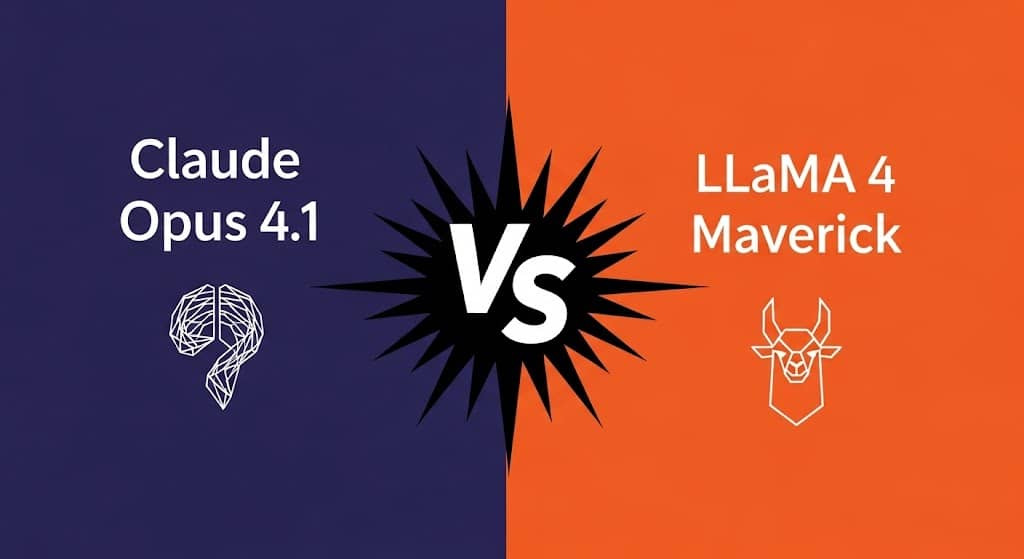A tale of two titans
In 2025, two AI models have emerged as leaders in different arenas:
- Claude Opus 4.1, released by Anthropic on August 5, is the company’s most powerful model yet. It’s purpose-built for long-context reasoning, advanced coding, and sustained task execution—boasting up to seven hours of autonomous operation and branded as the “best coding model in the world” by its creators.
- LLaMA 4 Maverick, unveiled in April, brings an open-source philosophy to the table with massive scalability and customization at a fraction of the cost, thanks to a staggering 1‑million‑token context window and an affordable token price.
Head-to-head at a glance
| Feature | Claude Opus 4.1 | LLaMA 4 Maverick |
|---|---|---|
| Release Date | August 5, 2025 | April 2025 |
| Context Window (Input / Output) | 200K / 32K tokens | 1M / 1M tokens |
| Benchmarks | High SWE-bench (74.5%), coding excellence | Strong multimodal and reasoning, competes well with GPT-4o and Gemini in benchmarks |
| Cost | $15 per 1M input tokens / $75 per 1M output tokens | Extremely low—around $0.17 per 1M input and $0.60 per 1M output tokens |
| Licensing | Proprietary | Open-source (llama_4_community_license_agreement) |
| Ideal Strengths | Deep coding, complex long-form reasoning, AI agent tasks | Processing ultra-long documents, custom deployments, cost-effective scaling |
Claude Opus 4.1: Deep reasoning & sustained focus
Anthropic’s flagship model impresses with:
- Continuous task execution of up to seven hours—ideal for AI agents and sustained workflows.
- Superior coding performance, significantly outperforming earlier models like GPT‑4.1 on benchmarks such as SWE-bench.
- High-fidelity reasoning with “thinking summaries” and a hybrid reasoning mode for transparency and granularity in responses.
But these advances come with a premium price, costing more per token than nearly any other mainstream model.
LLaMA 4 Maverick: Scalable and budget-friendly
Meta’s open-source workhorse offers:
- Unmatched context scalability, handling up to 1 million tokens flexibly in both input and output.
- Affordable pricing—just cents per million tokens—making it ideal for high-volume processing or deployment at scale.
- Community and customization potential with its open-license structure, enabling tailored solutions and local deployment.
That said, its benchmark performance, while strong, doesn’t quite match the peak reasoning or coding capabilities of proprietary contenders.
Which model fits your needs?
Choose Claude Opus 4.1 if you:
- Require high-quality, sustained performance on coding and reasoning tasks.
- Need AI agents or long-form workflows with coherent, multi-hour context tracking.
- Are willing to invest in premium accuracy and deep thinking.
Opt for LLaMA 4 Maverick if you:
- Handle vast corpora or long documents and need massive context support.
- Prioritize cost-efficiency and run your own infrastructure.
- Value open-source flexibility and customization.
Final thoughts
In 2025, Claude Opus 4.1 stands out as a powerhouse for sustained, deep reasoning and coding excellence—perfect for enterprise-grade or developer-centric workflows. On the flip side, LLaMA 4 Maverick shines with its scalability, accessibility, and affordability, especially for open-source enthusiasts or bulk content processing.
Ultimately, Claude wins on depth; LLaMA wins on breadth and cost. The smarter choice lies with what your projects demand most.


Leave a Reply